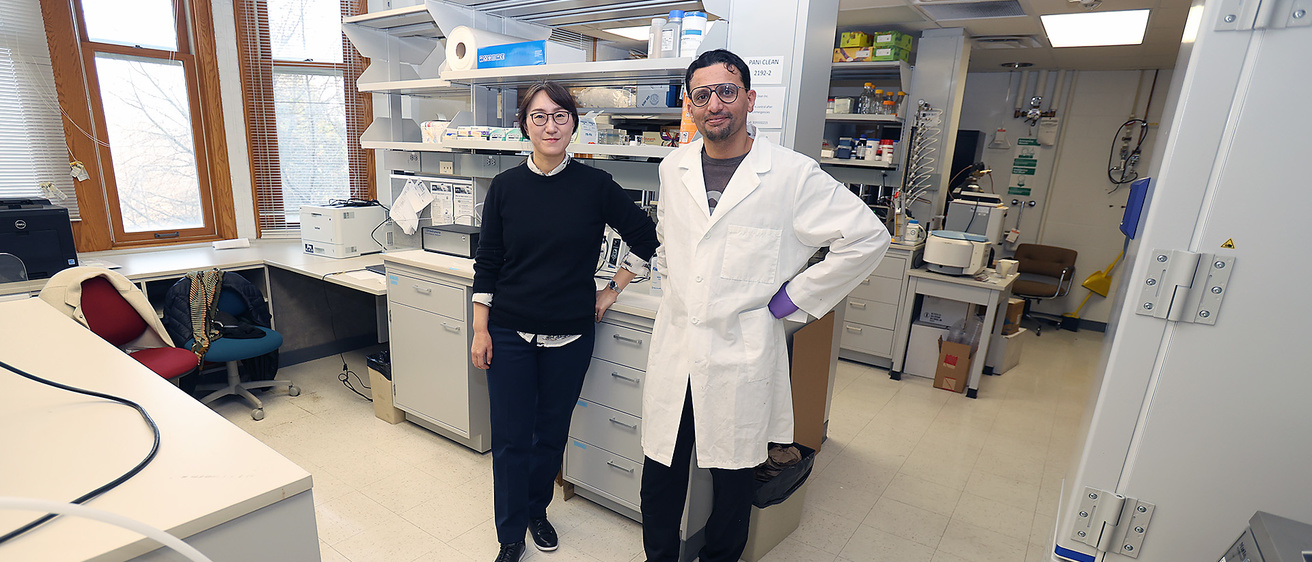Joun Lee and Abdulsattar Hasim Ghanim Al Saedi (Sattar) are more than electrochemists doing research at the University of Iowa. They are also parents.
The latter fact serves as motivation for their company Pani Clean, where Lee is CEO and Sattar is CTO. Lee and Sattar are working hard so that their children — and generations to come — have a better tomorrow.
“I believe we owe clean environments for our children in the future,” Lee said. “The environment is going to be very much impacted in the next 10-20 years and we want to make healthy communities, especially the ones where the children and elders are most impacted. We want to make sure we have provided a solution.”
The layman’s summary of Pani Clean is that the company is an energy-efficient, cost-effective solution for water treatment. Getting more technical, the Pani Clean technology removes pollutant ions like nitrates from water, leaving safe drinking water on one side and ammonia on the other.
“The rate of the removal is faster than traditional technologies,” Sattar said. “It is not just concentrating the pollutants, it is converting the pollutants, and this is the key part of the technology.”
Instead of dumping pollutants back to the main source or spending a lot of money to dispose of them, Pani Clean removes nitrates from river water or ground water, then immediately converts those into a mixture of nitrogen and ammonia. By controlling the ratio of nitrogen and ammonia, Pani Clean can put the product back into farmland as fertilizer.
Sattar says the units can run on solar power as they convert a majority of the nitrate to value-added products.
Both Lee and Sattar have participated in Venture School, led by the University of Iowa John Pappajohn Entrepreneurial Center (Iowa JPEC). Lee also participated in the NSF I-Corps program and Pani Clean has twice pitched at Innovation Challenge.
“We immensely appreciate the guidance and teaching Iowa JPEC provided, especially having us go through I-Corps and teaching us through Venture School,” Lee said. “Even after that, Iowa JPEC has supported us through grants, so the company can spend on building these units.”
Founded in 2016, Pani Clean currently has one unit, but the company is working on developing a larger mini-industrial prototype that will be portable and modular. The target audience is city water systems, private well owners, and farmers who want to salvage fertilizer after agriculture run-off. Lee says Pani Clean is trying to understand the costs associated with scaling the business. Her next goal is to implement their technology on-site, so they can have units installed in the farmland next to the tile where waters are coming off, or have it installed in the city water system.
“Most of the water systems are not very energy efficient, so there is a great need to make the system energy-efficient,” Lee said. “We also want to bring and maintain the costs low; water is a commodity that people do not like to spend a lot of money on.”
Pani Clean has received three awards from the USDA, two awards from BioConnect Iowa, and its technology was featured in the Global Water Intelligence magazine.
Iowa JPEC is the hub for entrepreneurship education and outreach at the University of Iowa. The next Venture School competition will begin the week of Feb. 20. For more information on Venture School, click HERE.
